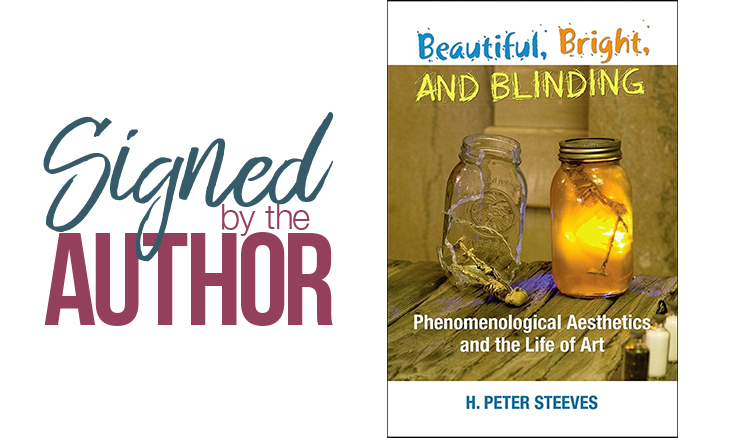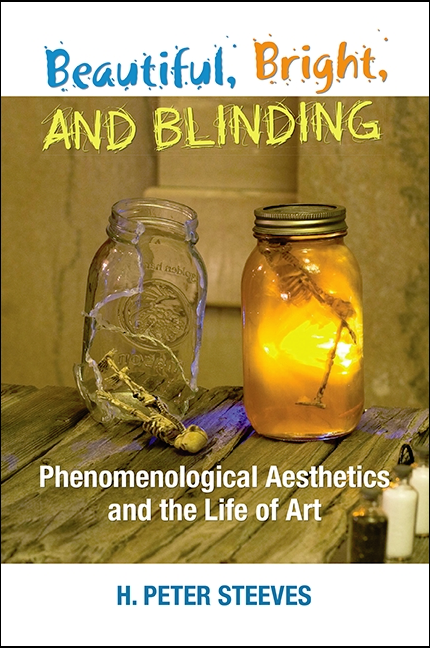 (DePaul University/Jeff Carrion)
(DePaul University/Jeff Carrion)
By: H. Peter Steeves, Department of Philosophy
Through an analysis of concrete examples taken from everyday experience and culture, “Beautiful, Bright, and Blinding” develops an aesthetic methodology founded on a phenomenological approach to experience—one that investigates how consciousness engages with the world and thus what it means to take such things as tastes, images, sounds, and even a life itself as art. Along the way, the book investigates the paintings of Arshile Gorky and Mathew Girson, the films of Michael Haneke, Disney animation, “The Simpsons,” the performance art of Andy Kaufman and even vegan hot dogs. Refusing hierarchical distinctions between high and low art, the book argues that we must conceptualize the whole of human experience as aesthetic: art is lived and living is an art.
 (Image courtesy of SUNY Press)
(Image courtesy of SUNY Press)
Who inspired you to write this book?
Socrates gave us a clear dictum: the unexamined life is not worth living. The history of philosophy and Western culture in general often separates values from experience, claiming that values cannot be experienced, that “you cannot get an ought from an is” and that value judgments are either relative or in need of a completely different sort of argument compared to judgments about the material world. I have worked and published quite a bit in the area of ethics and political theory, arguing that our lives, when properly examined, are “soaked through” with moral, social and political values that are built-in to the world on a foundational level. This book is an attempt to show the same is true for aesthetics. Aesthetic values are experienced not only when we look at a traditional work of art, but also in every experience we ever have: to be conscious is to be engaged in the aesthetic.
What's the most surprising thing you learned while writing this book?
The most surprising thing I learned was that there are now machines that can "print" edible pizzas at the push of a button. And that, given the right circumstances, such as a desert island shipwreck or zombie apocalypse, I might be willing to try one.
About the author:
H. Peter Steeves is professor of Philosophy and director of the Humanities Center at DePaul University. He specializes in phenomenology, ethics and philosophy of science. Steeves is the author of eight books, including: "Founding Community: A Phenomenological-Ethical Inquiry;" "The Things Themselves: Phenomenology and the Return to the Everyday:" and the forthcoming "Being and Showtime."
Publisher, publication date, length:
SUNY Press, November 2017 (paperback, July 2018), 270 pages
Signed by the Author allows DePaul faculty and staff to introduce their recently published or upcoming book or chapter to the university community. To submit your book or chapter for consideration, contact Newsline.